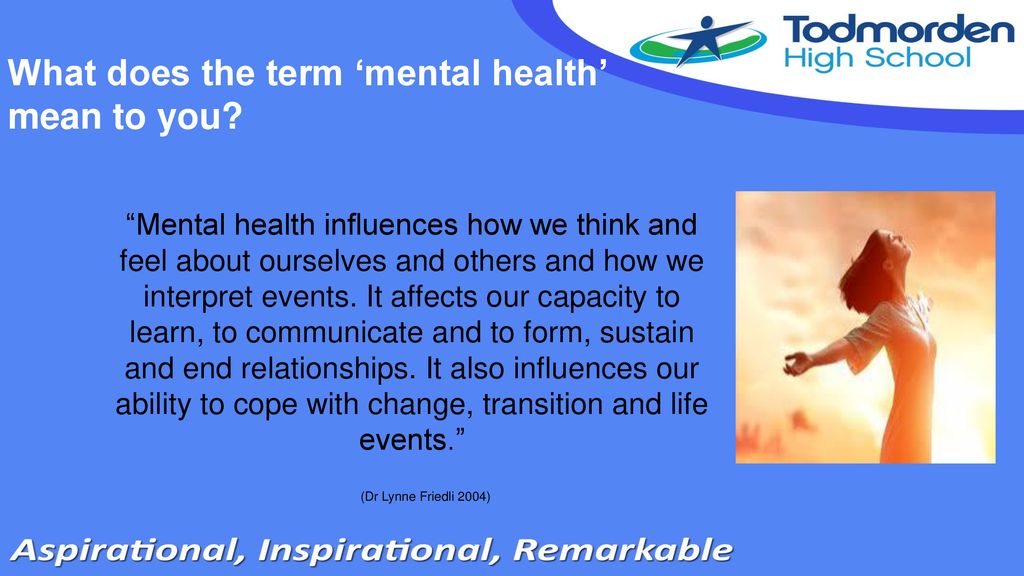NHS Health Scotland. [seen 24 August 2016] Readily available from: http://www.healthscotland.com/uploads/documents/20387-PractitionerGuide.pdf RCPSYCH, 2014. NAS Resources [online] Royal College of Psychiatrists (how teaching affects your mental health). [viewed 24 August 2016] Available from: Paths for All, no date. Walking football [online] Courses for All. [viewed 27 August 2016] SAMH, no date. Get Active [online] Scottish Association for Mental Health.
Institute of Psychiatry, Healthcare facility das Clnicas, Faculty of Medicine, University of So Paulo So Paulo/SP, Brazil. E-mail: [email protected]!.?.! Exercise is an essential public health tool used in the treatment and avoidance of various physical diseases, in addition to in the treatment of some psychiatric illness such as depressive and stress and anxiety disorders. Although the variety of reports of the effects of physical activity on psychological health is gradually increasing, these research studies have actually not yet determined the mechanisms involved in the advantages and threats to mental health related to exercise. This short article reviews the info readily available regarding the relationship between physical activity and psychological health, particularly dealing with the association in between exercise and state of mind. State of mind. Sports. Exercise. A atividade fsica, por seus efeitos no tratamento e na preveno.
de vrias patologias, um importante instrumento de sade pblica, sendo til, inclusive, no tratamento de doenas psiquitricas como transtornos depressivos e ansiosos. Todavia, alm dos benefcios, a atividade fsica tambm est associada a prejuzos para a sade psychological, aparecendo ligada a quadros como" exerccio excessivo" e "sndrome de' overtraining'", segundo alguns estudos. Este artigo procura revisar os conhecimentos disponveis sobre as relaes entre atividade fsica e sade psychological, principalmente no que se refere ligao existente entre exerccio e humor. Unitermos: Sade mental, humor, esporte, exerccio. Exercise is recommended to the basic population by lots of medical entities consisting of the Centers for Illness Control and Avoidance( CDC )and the American College of Sports Medication( ACSM) because it is considered a crucial tool for the improvement of public health. In addition, exercise has increasingly been advised to people with or without disease in order to improve their quality of life. On the other hand, physical activity can compromise psychological health, specifically when carried out in a more extreme manner. The understanding of the effects of physical activity on mental health, for that reason, has the potential to affect, in different elements, the scientific practice of a psychologist or psychiatrist, on one hand, as an auxiliary tool in the avoidance and treatment of psychiatric illness, and as a tool in the promo of a more satisfying lifestyle, or on the other hand, as a cause of issues that require sufficient diagnosis and efficient treatment. Studies that assessed the association between exercise and psychological health were browsed. Just human-based studies written in English were selected. Medline database was sought advice from for posts released from 1990 up until 2002, relating the following keywords( in keywords field ):" sports "," exercise", "mood, "and" anxiety". This search results page in 762 references. All articles that did not have the primary concentrate on this relationship were excluded.
Articles with a concentrate on athletic injuries, personality profiles, athletic efficiency, drugs( medical or not), and handicapped athletes were excluded also. This screening led to 87 recommendations. Bibliographic recommendations in the picked short articles and books on the style were also consulted. 2 It has https://penzu.com/p/ad518b2d actually been understood for several years that regular physical activity brings benefits to people with depressive and stress and anxiety symptoms,15-22 a truth confirmed in recent research studies. 23-25 In addition, exercise enhances the lifestyle of patients with nonpsychiatric diseases such as peripheral arterial occlusive disease28 and fibromyalgia29 and assists in the relief of such varied conditions as nicotine abstinence30 and menopause. Research studies have revealed that individuals without psychiatric signs who regularly work out experience much better moods than those who do not,31-34 however, it ought to be noted that an association.

between improvement of state of mind and medium- or long-lasting physical activity has actually not consistently been shown for typical individuals. 33-36 On the other hand, there are research studies reporting enhancement of various other elements such as self-confidence,37 vigor,38 basic well-being, and complete satisfaction with physical appearance. 35 The effects of regular physical activity on mood have primarily been studied utilizing aerobic exercise,38,39 but evidence shows that anaerobic exercise, such as body building or versatility training, can also decrease depressive.
How Social Connection Affects Mental Health Things To Know Before You Get This

symptoms. 18,22,35 On the other hand, no consensus exists with regard to anxiety signs, with some authors reporting that anaerobic activity is as reliable as aerobic exercise,17 while others do not. 50 Various psychological hypotheses have been proposed to explain the useful impacts of exercise on mental health, the main being 1 )distraction, 2) self-efficacy, and 3) social interaction. The distraction hypothesis15 suggests that diversion from unfavorable stimuli.
leads to an improved mood during and after workout. The self-efficacy hypothesis20 proposes that, because exercise can be seen as a difficult activity, the ability to get involved in it in a routine manner may lead to improved mood and self-esteem. In addition, physiological hypotheses have actually likewise been raised to describe the impacts of physical activity on psychological health, the two most studied ones being based upon 1 )monoamines and 2 )endorphins. The very first hypothesis is supported by the reality that exercise increases the synaptic transmission of monoamines,15,51 which allegedly operate in the very same manner as antidepressive drugs. 15,52 The second hypothesis, however, is based upon the observation that physical activity causes the release of endogenous opioids( endorphins" endogenous morphines"), essentially beta-endorphin. 15,51,53 Allegedly, the repressive impacts of these compounds on the main anxious system are accountable for the Visit this website experience of calm and improved state of mind skilled after exercise,54 Click here to find out more but this has yet to be confirmed. 54 A last unclarified point is the truth that some studies54,56 have actually reported that opioid receptor blockers such as naloxone or naltrexone lower the affective response to workout, thus preferring a function of endorphins, however there are investigations contradicting this hypothesis. 35,41,57 No agreement exists concerning the relative importance of the above.
discussed hypotheses( both mental and physiological) in describing the association between physical activity and state of mind improvement. 35 In order to acquire an accurate meaning of this design, a better understanding of the mechanisms that connect exercise to each of these hypotheses and of the mechanisms that link these hypotheses to enhanced mood is necessary. This understanding will most likely result in a model in which mental and biological elements interact in a particular and concatenate way, and which varies according to environmental stimuli and the mental and biological attributes of each individual.